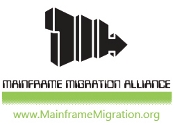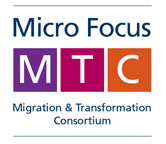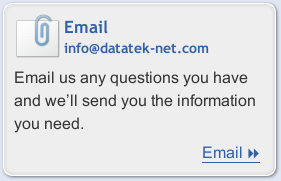Resources
Frequently Asked Questions | Expand All
| Expand All
 | Why would I want to do a language conversion or system migration? |
|---|
The main reason to migrate your system or application is simply to modernize your current environment. Many factors can influence this decision, including but not limited to the following:
- Support. The availability of support for both legacy platforms and legacy languages continues to decline.
- Developer Availability. The pool of programmers familiar with legacy technology continues to decline.
- Cost. Migrating to a newer system platform can reduce operating costs. Converting to a different programming language can reduce/eliminate licensing costs.
- Performance/Speed. Migrating from one system platform to another can dramatically improve the speed at which jobs and operations run.
- Market Expansion. Porting your application to a different platform may help you expand your customer base.
- Feature Availability. Different platforms and languages may offer newer and/or improved functionality (e.g., web integration, hardware availability, etc.).
- Third-Party Product Availability. Newer and/or more software solutions may be available on other platforms.
If any of these factors are pertinent to your current situation, contact Datatek to discuss available options. Datatek can evaluate your environment and recommend a solution that fits your specific needs. Additionally, Datatek uses automated conversion tools, which offer numerous advantages, including speed, efficiency, and reliability. If you are interested in improving your IT system, please contact us for more information.
 | Are your conversion and system migration services full turnkey solutions? |
|---|
Yes, Datatek is responsible for returning to the customer a working system or application that is functionally equivalent to the original. The customer’s only responsibilities are to provide the appropriate site-specific information (files, databases, etc.) and to perform the qualification.
 | Why convert my existing application when I can switch to a software package? |
|---|
Software packages often seem like easy solutions, promising a new and better way. But before you embrace the "out with the old and in with the new" adage, be sure to consider what you’re really getting. Package replacements are often expensive; however; the real expense lies not in the purchasing price, but in the long-term cost of change to your business.
Though some packages may appear to offer similar functionality and/or a variety of new features, they were not designed with your business in mind. Differences will exist and these differences will affect your business. For instance, your business will most likely have to modify its processes and practices to accommodate for differences in implementation. Additionally, the package may have to be modified to accommodate for gaps in functionality, thereby increasing your total replacement cost. Another change to consider is support. With a software package, you will not have the same level of control over the application as you did before. Instead, you will be at the mercy of the vendor and whatever support/functionality they may or may not provide. The key question which needs to be answered is will the software accommodate your business or will your business be forced to accommodate the software?
Your company has spent considerable manpower and money designing/maintaining your current application so that it fits your business processes (e.g., certain functionality is handled by certain modules, information is available at a certain level of granularity). So, keep your investment by modernizing your application via an automated conversion. Automated conversions are quick, efficient, and cost-effective. They allow you
- to keep the look and feel of your application without major modification,
- to eliminate and minimize retraining for your users and support staff,
- to reduce the downtime that so often accompanies change,
- and, in many cases, to incorporate additional functionality into your application.
If you would like more information on how Datatek can help you retain your investment while modernizing your application, contact a technical specialist today for a free quote.
 | What if we've outgrown our application and need new functionality? |
|---|
Datatek can frequently provide additional functionality as part of the conversion process. Datatek understands that a business’s application must remain current, reflecting the needs of the business. If your current application seems outdated, contact a technical specialist at Datatek to discuss options that may be available (e.g., modernizing the user interface, updating database data fields, modifying the screen layout, changing the underlying data access method, etc.).
 | How can I modernize or extend the capabilities of my legacy applications? |
|---|
Several options exist for modernizing or extending the capabilities of your legacy application; however, they are all dependent on details particular to your site. If all or some of your applications are written in an outdated language, a complete or partial language conversion may increase your efficiency and speed, as well as broaden the availability of support personnel. If your applications are sitting on a legacy platform, migrating to an Open System may improve your performance. Perhaps you’re still using character-based terminals and want to improve your interface by adding GUI functionality. Regardless of your needs, Datatek can help you find a solution that will improve your legacy applications. Contact us today to talk to a technical specialist.
 | We have coding standards in place for new code. Can you convert the code to use these standards? |
|---|
Yes, Datatek can meet existing or designated coding standards. We can even match the coding methodology used in existing code. Because we use automated conversion tools, the formatting and object use will be consistent across all source files.
 | How maintainable will the converted code be? |
|---|
Datatek’s goal is to provide a high-quality conversion that produces consistent, maintainable code. This is why we only offer code conversion as a service. No two code bases are alike and each customer has their own view of what “maintainable” means to them. Based on input from the customer, we can customize our conversion process so as to produce code that better reflects the customer’s definition of “maintainability.” Customers are not “locked” into whatever code a converter just happens to spit out. Contact us today to talk to a technical specialist.
 | What if the target language doesn’t support all the features of the original language? |
|---|
Some code conversions make more sense than others because some operations are more easily accomplished in one language than another. As part of the code conversion service, Datatek can evaluate your current environment and recommend a conversion solution that fits your specific situation. For instance, you may have modules or libraries that would be better served by a different language. If a specific language is not available, alternatives can be provided. Always, Datatek’s goal is to provide a high level of quality and maintainable code.
 | What happens if something isn’t converted correctly? |
|---|
Datatek is responsible for the conversion process; therefore, any conversion errors encountered will be resolved during the qualification phase of the conversion. Because Datatek uses an automated conversion process, modifications can be made quickly and across-the-board.
 | Do automated conversions cost less than manual rewrites? |
|---|
Unless you are dealing with only a few thousand lines of code, an automated conversion will be significantly less expensive in both time and effort than a manual rewrite.
 | What are the advantages of doing an automated conversion versus a manual rewrite? |
|---|
Automated conversions offer several distinct advantages over manual rewrites.
- Automated conversions are fast. Manual rewrites can very easily take man-years to complete because the logic of the legacy code must be evaluated before it’s converted to the new language. Then, the compile | test | modify cycle begins, which can also be a lengthy process since modifications must be made one line at a time rather than across the entire body of code.
- Automated conversions are consistent. Multiple developers manually converting code can lead to a lack of coding consistency (e.g., different programmers will write constructs differently). In addition, the modifications may not be made consistently throughout the body of code.
- Automated conversions are reliable. When a conversion bug is fixed, it’s fixed throughout the entire body of code. When a bug is fixed manually (often times by multiple developers), all instances of the bug may not be found. Additionally, human error can sometimes lead to the further introduction of bugs.
- Automated conversions are adaptable. The speed and accuracy of the automated compile | test | modify cycle allows developers greater flexibility than that afforded by the manual rewrite process. Sections of code can be quickly added and/or removed throughout the conversion cycle, thus allowing for immediate feedback. Manual rewrites do not permit such luxuries.
Since 1995 Datatek has been developing and refining the tools it uses for automated language conversions. The development of our tools is based on the fact that we do not believe the “one size fits all” approach produces satisfactory converted code. Our converters are individually customized to meet the unique requirements of each client. Datatek’s automated code conversion service provides customers with the best of both worlds: the speed, consistency, and reliability of automation along with individualized customization based on a customer’s needs. Contact a Datatek specialist today for more information.
 | What is the price of a typical language conversion project and how is it determined? |
|---|
The price of a language conversion is dependent on many site-specific issues. The following list contains the most common criteria used by Datatek when determining a price:
- the amount of code to be converted
- the number of operating system dependencies
- the number of hardware dependencies
- data access issues
- the number of languages to be converted
- the language(s) being converted from and to
- additional vendor costs (e.g. license and runtime costs)
- the amount of third-party product integration required
- the amount of project management required
- the amount of formal customer training required
If you are interested in pricing for a specific project, please contact Datatek for a free quote or estimate.
 | Why does Datatek do language conversions only as a service? |
|---|
We have found that a general purpose converter tool used as a stand-alone product does not provide a satisfactory solution for language conversion. In order to provide the best possible code conversion, we customize our tools to interact with the site’s environment as well as to accommodate for site-specific changes. Additionally, even though our converters have a successful conversion rate of over 99%, a small amount of hand-coding is almost always necessary to produce the quality of code that we demand. Dedicated to maintaining a high level of standards with regard to our products and services, Datatek believes that these factors necessitate that language conversion be offered as a service to ensure an outcome that meets and/or exceeds the expectations of the client. The benefits of having a programmer who specializes in language migrations customize the converter to produce readable, maintainable code that matches the client’s coding specifications can not be overstated.
 | How do I deal with systems that are programmed in a language that no one in-house knows? |
|---|
Obtaining legacy language support is a common problem. What was considered cutting-edge technology 10 to 25 years ago is considered old-school technology today. Languages that had been routinely taught are no longer part of the higher education curriculum. Experienced developers in these older languages are either retiring from the workforce or are switching to a newer technology field out of fear of technical obsolescence. As a result, the number of available personnel to support many older systems continues to dwindle. By converting your legacy code to a more widely used industry-standard language, you will benefit from a larger pool of qualified programmers. Datatek has the knowledge and experience to help you easily make this transition. Contact Datatek today and start your move to a language that can be easily supported.
 | How do I deal with my legacy systems if the younger workforce does not have skills in legacy technologies? |
|---|
Applications written in older languages are sometimes dependent on the proprietary operating system and/or hardware. Unfortunately, many of these languages are no longer part of the higher education curriculum. Experienced developers in these languages are either retiring from the workforce or are switching to a newer technology field. As a result, the number of available personnel to support many older systems continues to dwindle.
Obviously, alternatives are site-specific. For instance, if you are on a legacy platform that is no longer supported, you may want to consider a platform migration. The combination of the new platform and your application’s current programming language will determine whether you will need any type of language conversion. For instance, applications written in assembler will have to be converted if they’re to be moved to an Open System. If you are not in a position to move platforms, yet are unable to find support for your applications, you may want to consider a language conversion only. For instance, you may have several applications running in PL/I that would be better served in C/C++.
As you can see, solutions exist that can reduce your costs, improve performance, and increase the availability of support personnel. Please contact a technical specialist at Datatek for more information.
 | Why shouldn’t I just migrate the system myself? |
|---|
The key to a successful migration is migration experience. You must know the differences between the existing system and the new system, identify the changes required for the application to be moved, and be able to implement the necessary modifications. Consider the following list of typical migration issues:
- if you are planning on converting to another language, do you have the resources for a lengthy manual conversion as well as the resources to maintain the existing systems?
- the language extensions provided by the legacy language compiler will most likely not be available on the new system
- system calls and shell commands utilized in your programs may not be available on the new system
- data format (field sizes and alignments, big/little endian issues)
- data access (databases and flat files)
- there may be differences in the arguments for system calls and shell commands
- the system configuration will, most certainly, be different
- addressing and handling devices
- printing functionality
- different system program locations
- environmental differences
- program execution differences
- differences in vendor-specific language and database features
Some of these differences may only show up at runtime, which can have serious implications if the application is not tested adequately.
Datatek has over 30 years of experience in system migrations. Experts on legacy code and Open Systems, Datatek’s staff has the knowledge and experience to move you to a new system in a short period of time. Additionally, Datatek has developed conversion tools that automate most of the migration process, which greatly increases the speed and efficiency of the migration as well as guarantees the reliability of the final product. With a suite of products, tools, and services, Datatek can provide a smooth and seamless transition to your new system.
 | Can’t I just use a bunch of cheap programmers from an outsourcing company to migrate my legacy system? |
|---|
Frequently, the motivation to use cheap outsourced programming labor is based on the belief that it is the lowest cost solution. However, it is important to understand that automation can deliver significant cost savings as well as reduced risk. To effectively compare various migration options, consider the following factors:
- Will the conversion be automated or will it be a manual rewrite? If the process is done manually, don’t expect clean, consistent code. Hand coding and multiple programmers typically lead to errors and problems in consistency.
- Does the company have real experience in legacy technology? Can they offer elegant and intelligent solutions? Some migrations are done by people who have access to manuals, but who don’t have any hands-on experience with the language they are converting.
- Consider the location of the company. Will their location adversely affect their support?
- What is the reputation of the company? Will your code be secure?
- What is the time frame for the migration? How much involvement will be expected of your staff? How much downtime will your business experience? Will retraining be an issue?
Datatek is a leader in the migration business with a reputation for fast and responsive support. Experts in both legacy and new technology, Datatek staff can move your applications off of your legacy system in a short period of time. Using its automated code converters, Datatek produces a high-quality converted product that is consistent and maintainable. If you are considering any type of conversion or migration project, contact the migration specialists at Datatek.
 | How can I cost effectively move my legacy application to a new platform? |
|---|
The most cost effective way to move your legacy application to a new platform is to automate the conversion. Automated conversions cost less than manual code conversions and they are far more accurate. Even if you are not changing languages, your code will most likely have to be modified to accommodate vendor-specific features on the new platform and can therefore benefit from the automation process.
Whether you are interested in moving your application to a different platform, converting your application to a different programming language, or both, Datatek has the necessary experience to meet your specific needs. Using our automated code converter tools, we can migrate your entire system in a short period of time. You can trust the migration specialists at Datatek to provide a smooth and seamless transition. Contact Datatek today for a free quote.
 | How much involvement will be required by my development staff during the migration process? |
|---|
During a typical migration project, Datatek’s intent is to minimize the disruption on your IT staff’s regular work routine. Initially, your IT staff will be responsible for providing Datatek with needed files, databases, and source code. Once this responsibility has been fulfilled, their involvement will be minimal until after the conversion phase has been completed. At this point, they will use their expertise in the application’s functionality to qualify the converted application. During qualification, Datatek will fix all conversion-related errors as they are found. Once all errors are reported and resolved, your staff will make a final qualification of the converted application. Learn about the steps involved in a typical migration.
 | How much disruption is there to my users when changing to the converted application or moving off the legacy system? |
|---|
Unless modifications to the user interface were requested, non-IT personnel may not even notice a change has taken place. Users may see changes where the application was making use of an operating system specific feature. For example, on the legacy system a user typed in the pathname to a file and “:” was used as the separator character for directories. The new system requires “/” to be used as a separator character, so users would have to type pathnames a little differently. Typically, for sites that have migrated from a legacy system, many users tend to visibly see dramatic speed improvements. Contact a Datatek technical specialist for more information.
 | Can you convert my data access or hierarchical database to an Oracle or some other modern relational database? |
|---|
Yes, because Datatek has developed and maintained both a relational and a hierarchical data manager, Datatek has the tools, knowledge, and expertise to move your database application to a modern relational data manager. Please contact a technical specialist at Datatek for more information.
 | Can I move my legacy system to J2EE/Java EE or Microsoft’s .NET? |
|---|
Yes. Datatek can customize its conversion tools to separate your application into components compatible with J2EE/Java EE or the .NET framework. This is a highly customized transformation. For more information, please contact Datatek and a technical specialist will provide you with a free quote that is tailored to fit your specific needs.
Resources
- Discover How Datatek Helped A Major American Retailer Save $900,000 Per Year
- 20 Questions Your Code Conversion Partner Better Have a Good Answer For
- All Automated Language Conversion Services Are NOT Created Equal
- Discover 5 Ways an Automated Language Conversion Can Save Your Company Time and Money
- Frequently Asked Questions
Related Services
Language Converions
System Migrations
More Info
Strategic Partners




How Can We Make This Website Better?
If you’ve discovered a mistake, an ambiguity, or that some important information is missing from this website, please let us know.
© Copyright Datatek, Inc. 1994-2024, All rights reserved. All trademarks belong to their respective owners.


